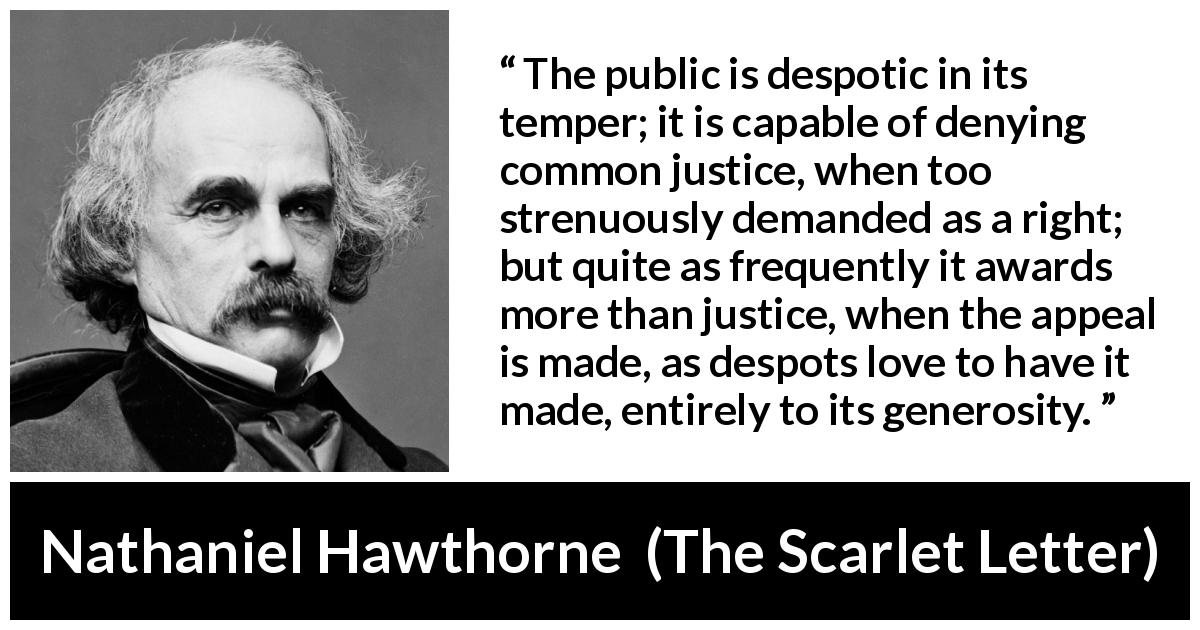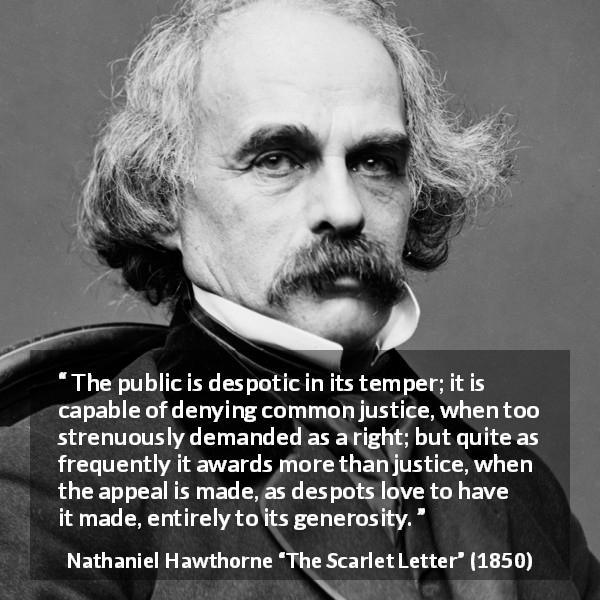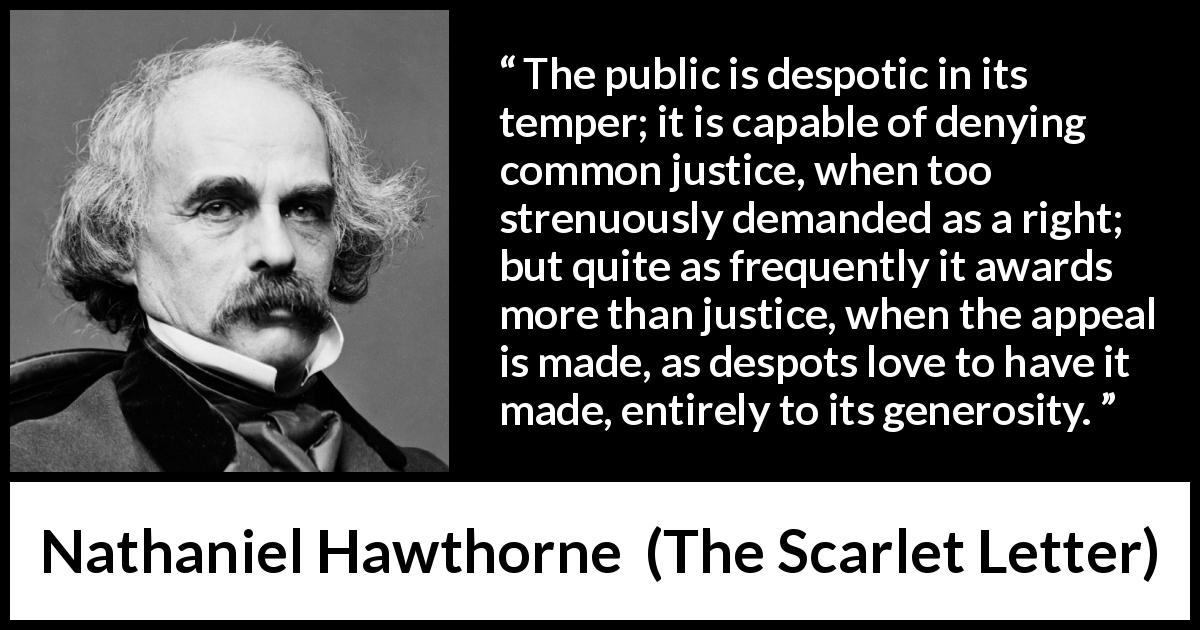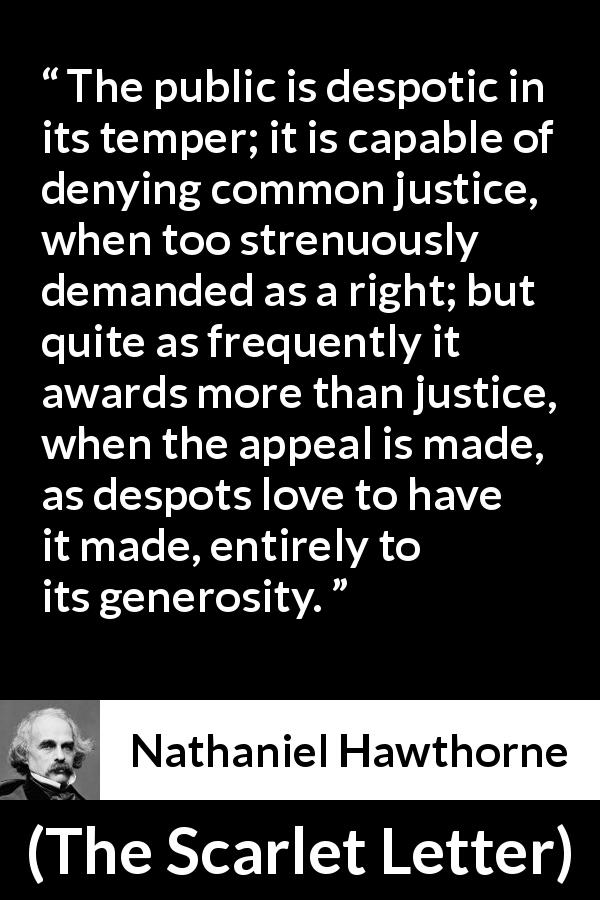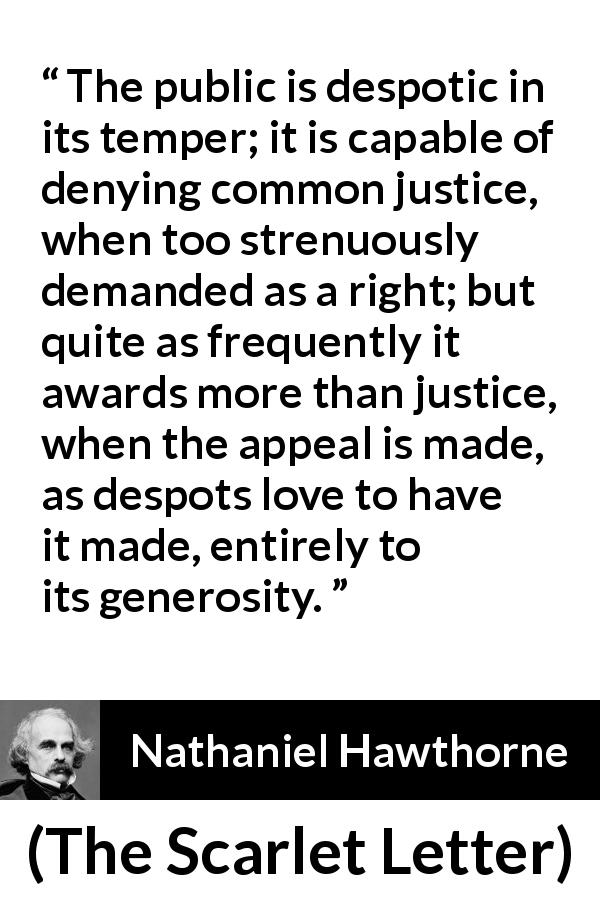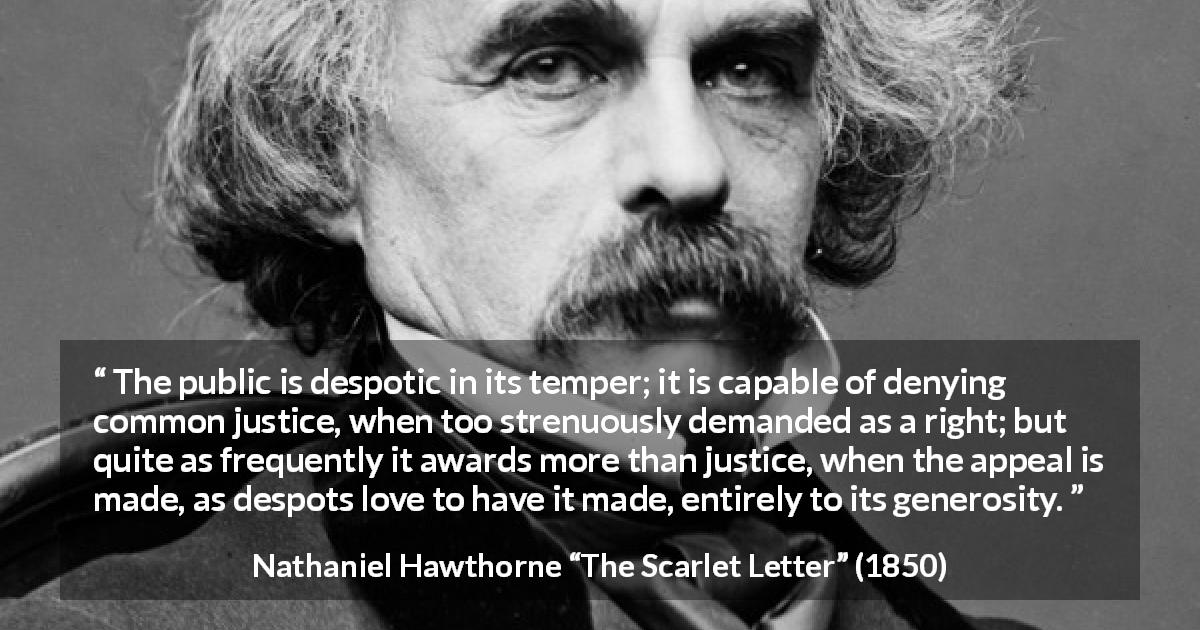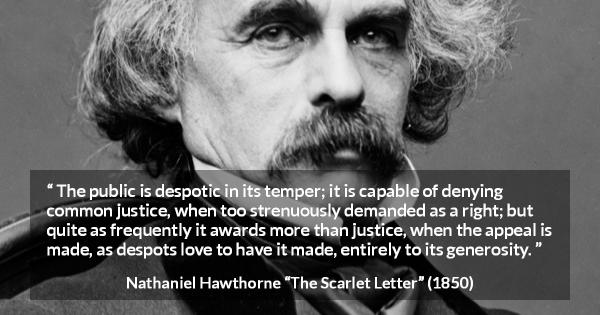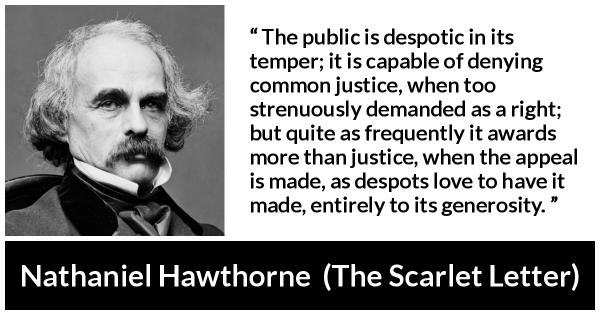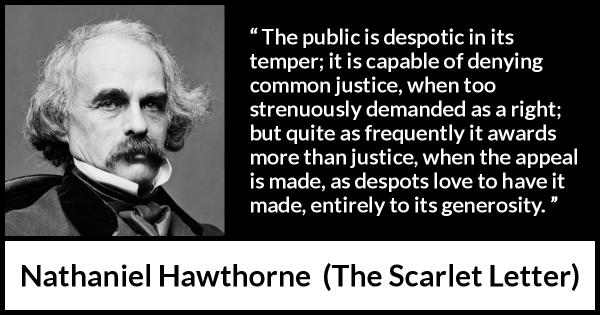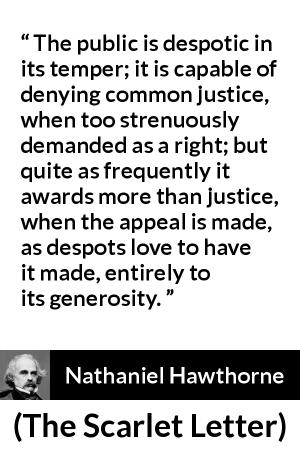“ The public is despotic in its temper; it is capable of denying common justice, when too strenuously demanded as a right; but quite as frequently it awards more than justice, when the appeal is made, as despots love to have it made, entirely to its generosity. ”
Nathaniel Hawthorne, The Scarlet Letter (1850). copy citation
| Author | Nathaniel Hawthorne |
|---|---|
| Source | The Scarlet Letter |
| Topic | justice despotism arbitrariness |
| Date | 1850 |
| Language | English |
| Reference | |
| Note | |
| Weblink | http://www.gutenberg.org/files/25344/25344-h/25344-h.htm |
Context
“If they were resolute to accost her, she laid her finger on the scarlet letter, and passed on. This might be pride, but was so like humility, that it produced all the softening influence of the latter quality on the public mind. The public is despotic in its temper; it is capable of denying common justice, when too strenuously demanded as a right; but quite as frequently it awards more than justice, when the appeal is made, as despots love to have it made, entirely to its generosity. Interpreting Hester Prynne's deportment as an appeal of this nature, society was inclined to show its former victim a more benign countenance than she cared to be favored with, or, perchance, than she deserved.”
source
